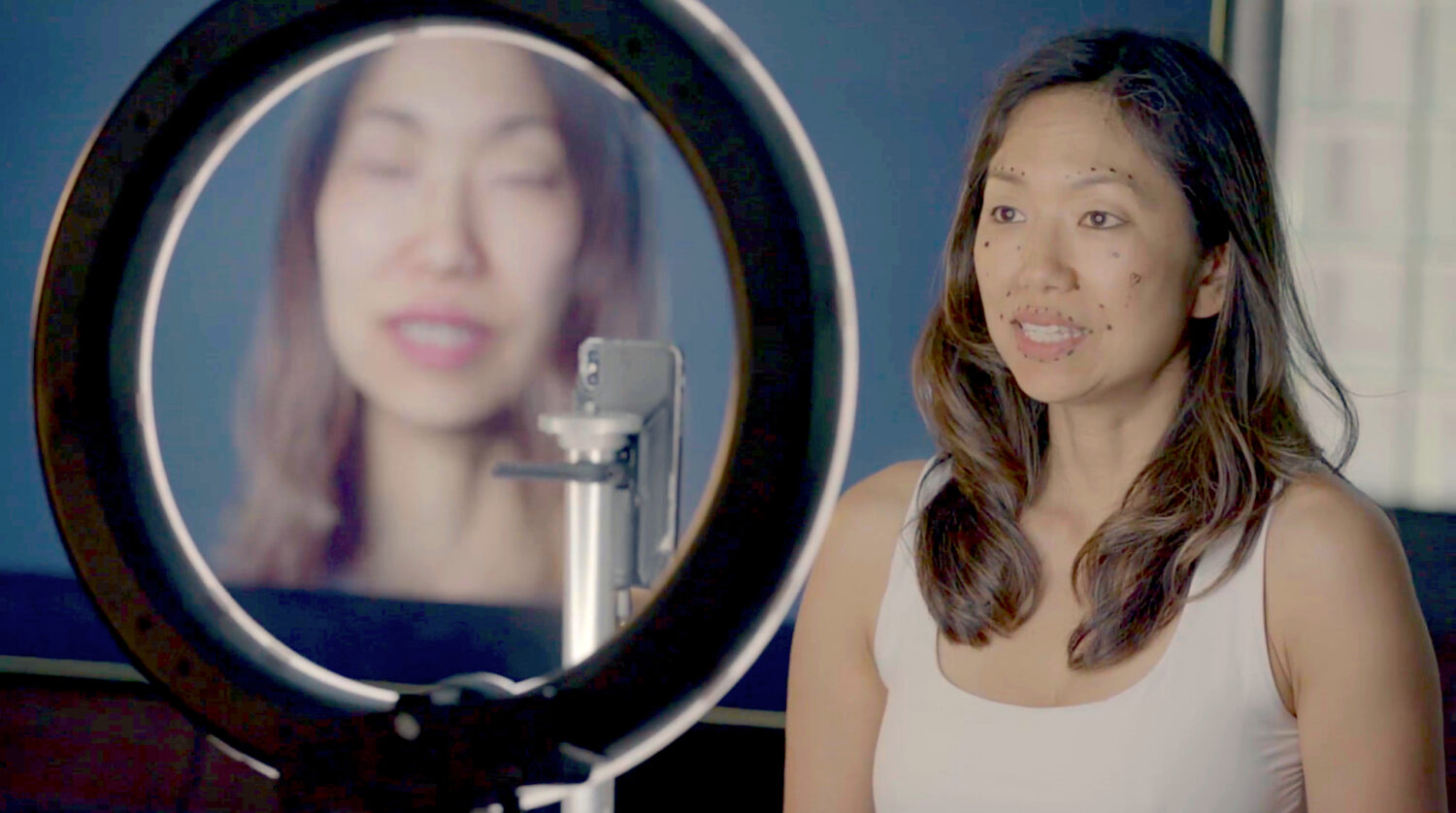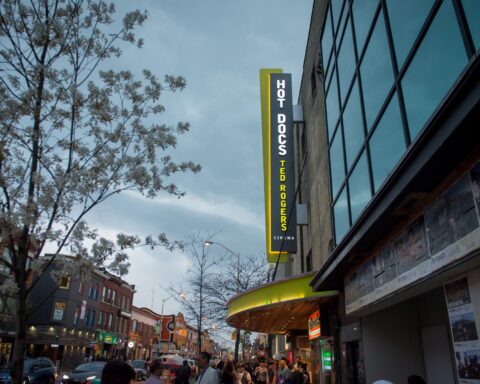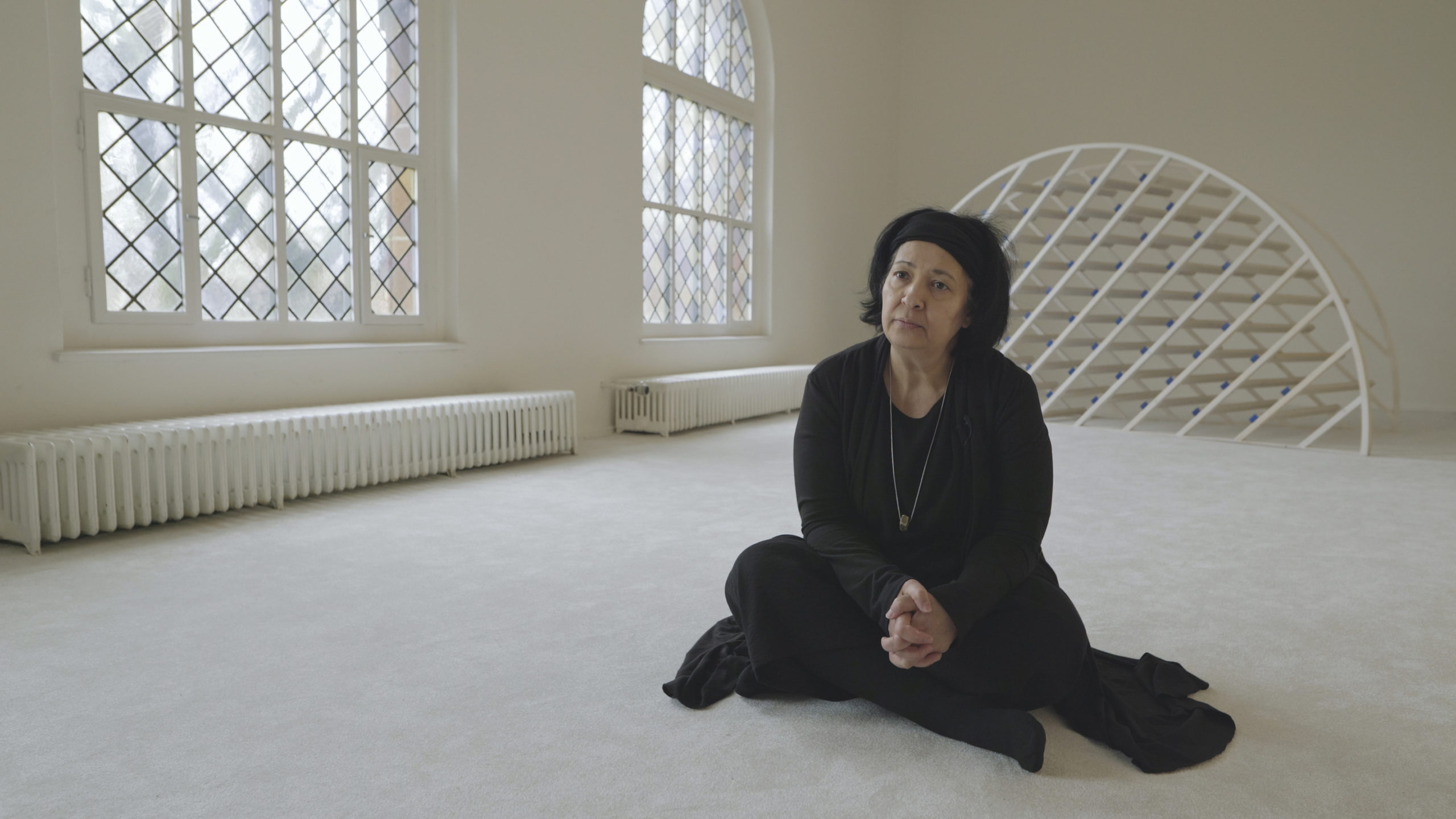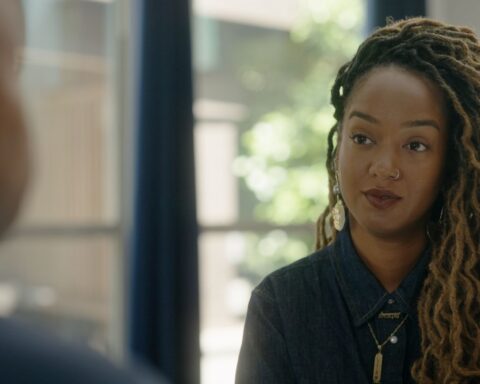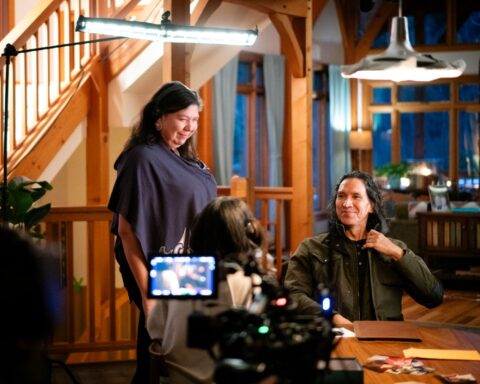This year’s edition of Hot Docs is again virtual, but it looks like the characteristically robust line-up the festival usually offers. With 220 documentaries, the scale of this year’s event isn’t far from the usual line-up. “We weren’t sure going into the process what it would be like,” admits Hot Docs director of programming Shane Smith in an interview over Zoom. “We weren’t sure if we’d have to shrink the festival, but, sadly, we had to turn down so many good films that we just didn’t have room for in the line-up.”
Unlike the shift to digital last year, which happened after most programming decisions had been made, Smith says this year presented a new challenge in terms of programming within the changing forecast of Ontario’s COVID case counts. “We were basically planning three different festivals—an in-person festival, an online festival, and a hybrid version.” The festival announced early on that it anticipated a hybrid event in order to be transparent with filmmakers and sales agents, but was pragmatic as the situation made that increasingly less likely when time came to send the invitations. “We invited them on the basis that it was going to be an online festival and we hoped there would be some in-person opportunities, but we couldn’t guarantee anything,” explains Smith. “Everyone understood. Things have changed a lot and people have gotten comfortable with online festivals and the opportunities that they provide.” For example, this year’s Hot Docs includes events that seek to replicate the festival experience as best as one can in the virtual space with the premiere of Fanny: The Right to Rock bringing a virtual concert from the pioneering rock band Fanny to the industry events.
Smith adds that the online festival offers increased potential for the industry side of Hot Docs because more international delegates can attend, whereas they simply might not be able to make the trip for a physical event. Similarly, he says that Hot Docs is drawing upon the popularity of virtual filmmaker Q&As that help replicate the festival experience. “We have more recorded Q&As at the end of films this year,” notes Smith. “We surveyed the audience last year and they really appreciated the connection that we’re able to bring with the filmmakers.”
The COVID-19 pandemic itself is inevitably reflected in the Hot Docs’ line-up. Smith says it’s a testament to the filmmakers’ resilience that there were numerous COVID docs from which to choose, but the programming team had to consider whether audiences might have an appetite for films depicting a stressful event in which they’re currently living. “We were looking for different perspectives on COVID from different countries, different governments’ handling of the situation, and different personal impact,” explains Smith. “We were looking for the stories that were relatable to us, like Wuhan Wuhan, which is on the ground in the beginning of the pandemic, a fascinating reminder of the personal toll from ground zero.” The film by Yung Chang is one of the Canadian docs appearing in the Special Presentations and is in good company with Nanfu Wang’s acclaimed Sundance doc In the Same Breath, which offers a personal interrogation of China’s mishandling of the situation and the parallels between the government’s response and that of the Trump administration. “I’ve always loved how documentaries can do this deep dive into specific moments, specific issues, and specific stories that we think we know because we hear about them every day on the news, but we don’t see it from this holistic perspective,” says Smith.
Smith also highlights the world premiere of Viral among as a unique portrait of the pandemic. The film by Udi Nir and Sagi Bornstein brings together various stories uploaded by YouTubers during the early months of 2020 that shared their goals and aspirations for the year ahead. Smith says the doc offers a chance to see the pandemic unfold from the perspectives of twentysomethings whose travel plans and adventures were halted. “It’s artfully and smartly constructed and edited, giving us a variety of perspectives on the issue,” says Smith. Alternatively, doc fans can see the impact of Zoom in John Greyson’s short International Dawn Chorus Day, an ingenious work that captures birdsong from around the world and unfolds a playful narrative that ultimately becomes a jarring study of the effect of COVID-19 on activists worldwide.
Smith says that his programming team’s immersion in stories from the pandemic inspired them to create an informal sub-category of “COVID-adjacent films.” These docs, Smith explains, weren’t about COVID specifically, but resonated with the moment by reflecting COVID protocols in production, including images of subjects’ removing their masks, or simply portraying aspects of life in lockdown.
The effect of screening films during COVID made some docs resonate more strongly, like Hot Docs’ opening night selection, A.rtificial I.mmortality, directed by Toronto’s Ann Shin. The film is a personal exploration of the role that artificial intelligence and avatars play in our daily lives—a point that’s become especially salient as people transition to virtual workspaces and digital communication amid COVID. The film draws upon the declining health of Shin’s father as an entry point to explore the ways in which AI mediates and preserves human life. “Seeing Ann’s take on artificial intelligence from a really personal perspective resonated in a different way from a film that would just be about the technology and what the advances were for AI,” observes Smith. “Her way into it with a personal story gives us that tangible connection to what AI is, means, and could be as it’s already starting to impact on our lives.”
The tumultuous events of 2020 are evident in this year’s themed program Systems Down. The spotlight stream focuses on stories about systemic inequality and the fight to change the status quo. “Systems Down was informed by what was going on in the world in terms of the protests, the racial issues, and the political unrest that was in the background of our lives,” explains Smith. “When we saw films that were picking up on systemic issues and about people working to change those issues and build a better world, we knew that there was an interesting chance to connect with audiences.” Among the films in the program are Gary Lang’s The Face of Anonymous, about controversial hacktivist (and former Toronto resident) Commander X, and Sheona McDonald’s Dead Man’s Switch: A Crypto Mystery, which explores a blockchain scheme with a Canadian connection. Similarly, audiences seeking docs that capture the cultural pulse can check out The Changing Face of Europe, which examines a continent in transition, or the popular Persister program, which spotlights female-forward stories that resonate with #MeToo.
On the other hand, films in the Scotiabank Big Ideas series reflect the times in different ways. Street Gang: How We Got to Sesame Street, offers a whimsical tribute to the beloved children’s TV series, but also invites conversations about the value of education, public programming, and basic human decency. “The legacy of the show and the enduring impact of it make it perfect for a discussion about not only what Sesame Street is and how it began, but also how it can help inform us as we work our way through the fractured world that we live in,” says Smith. Similarly, Smith points to Jennifer Holness’s Big Ideas entry Subjects of Desire as a selection that resonates strongly in light of the Black Lives Matter protests of 2020. “It has deeper layers through the idea of looking at Black beauty and aesthetics, but you can also learn a lot about the history of racism through the beauty industry and through various perspectives that Jen brings to that work.”
For audiences eager to tap into a different pulse—namely, how filmmakers at Hot Docs reinvent documentary form—the festival’s Markers program offers a curated spotlight of the most formally innovative and boundary pushing docs. Although Hot Docs has always screened poetic and unclassifiable works, one has simply had to know where to find them. The Markers program is in its second year and includes films like Natalia Almada’s thoughtful essay film Users about the pervasive role of technology in our lives. The film comes to Hot Docs after winning the directing prize at Sundance.
“The links that Users makes, the connections it draws, and the beautifully artful and creative way in which it’s constructed works on so many different levels,” notes Smith. “That’s a prime example to point to as a Markers’ film.” Other docs in the series include Her Socialist Smile, which lets audiences see Helen Keller anew, and Zaho Zay, a hypnotic and poetic shape-shifter about a prison guard imagining the life of the father who abandoned her after committing a murder.
Smith adds that audiences will find another innovation in documentary with Elle-Máijá Tailfeathers’ Kímmapiiyipitssini: The Meaning of Empathy. The film looks at the opioid crisis, its effects on the people of the Blackfoot reserve, and the community’s response to it. “The film is made with a new model of documentary filmmaking that’s collaborative, warm, and supportive, but it’s also clear-eyed in terms of the story it’s telling,” notes Smith. “This is a perfect example of a film that benefit from being told from within the community that the story is about.” Tailfeathers is among the Canadian talents participating in spotlight events among the industry programming where she will speak to her collaborative and community-oriented approach to the doc.
For audiences seeking to encounter a memorable character at the festival, Smith taps I’m Wanita as a Hot Docs highlight. I’m Wanita is a raucous portrait of Australian honky tonk singer Wanita Bahtiyar as she attempts to repair her hot mess of a life and stage a comeback. “The film is unforgettable because of her rawness and her willingness to share her life with the filmmaker,” says Smith. “There’s obviously a strong relationship between filmmaker and subject, and she’s such a larger than life character and open in a way that you don’t often see. Films about artists and celebrities can be a prescribed because they know their talking points, but she reveals everything in a way that’s really heartbreaking and unforgettable. I’m hoping that this film will help her as she chases her goals.” With this year’s festival available to audiences nationwide for the first time, the singer might have her widest reach yet.
Hot Docs runs April 29 to May 9.




